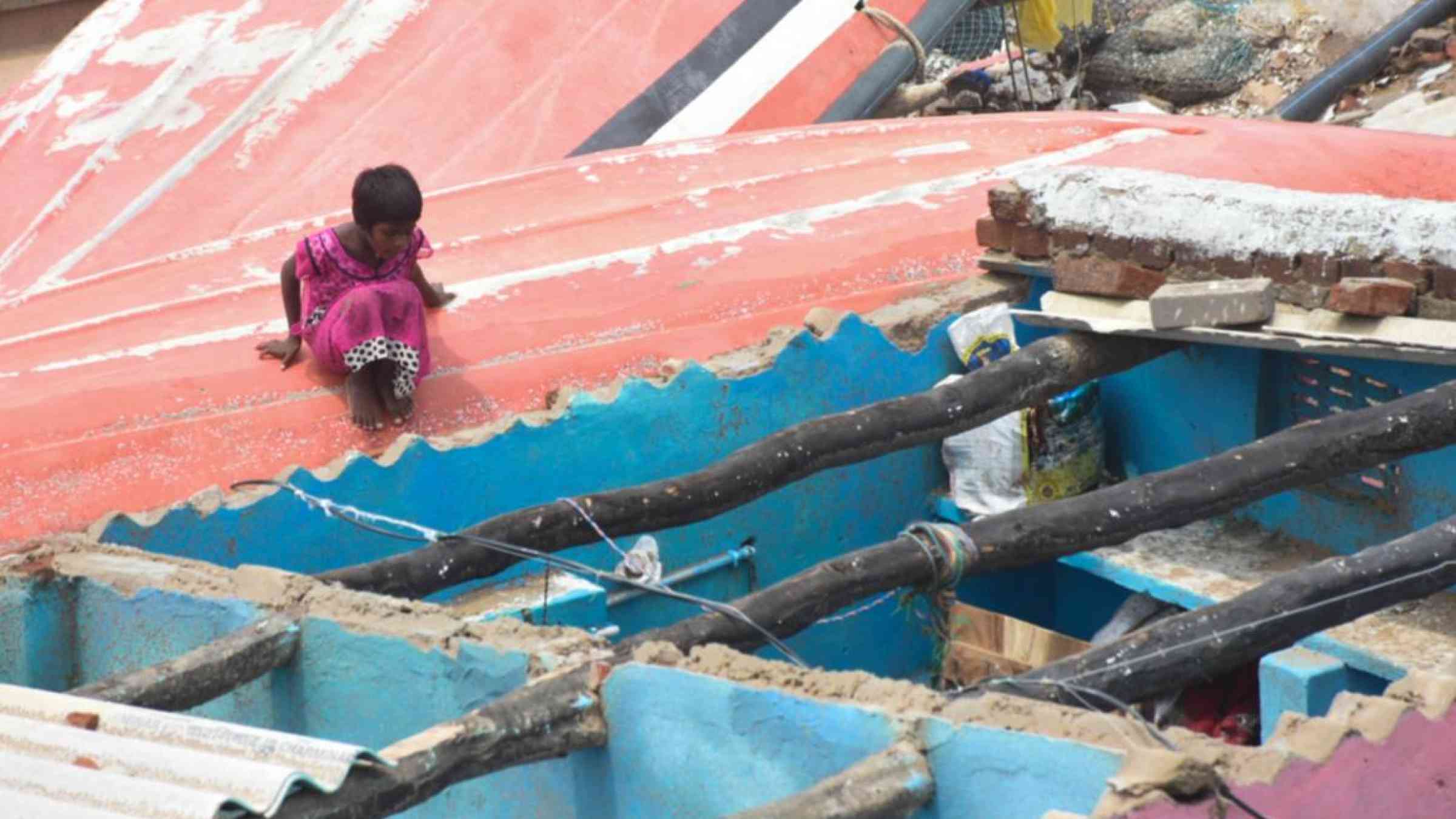Please help us improve PreventionWeb by taking this brief survey. Your input will allow us to better serve the needs of the DRR community.
Global Climate Risk Index: Disastrous tropical cyclones were major threat in 2019

Aftermath of Cyclone Fani in Odisha, India, 2019. Rakesh Roul/Shutterstock
By Vera Künzel, David Eckstein, Laura Schäfer and Stefan Küper
Mozambique, Zimbabwe and the Bahamas hit hardest by heavy storms and their direct implications in 2019 / Puerto Rico, Myanmar and Haiti with highest weather-related losses in the period from 2000 – 2019 / Climate Adaptation Summit starting today needs to discuss how to enhance support for vulnerable countries to deal with increasing climate impacts
Bonn/Berlin. Vulnerable people in developing countries suffer most from extreme weather events like storms, floods and heat waves, while the impacts of climate change are visible around the globe. Being the deadliest and costliest tropical cyclone in the South-West Indian Ocean, tropical Cyclone Idai was labelled “one of the worst weather-related catastrophes in the history of Africa” by UN Secretary General Antonio Guterres. It caused catastrophic damage and a humanitarian crisis, making Mozambique and Zimbabwe the two most affected countries in 2019. The Bahamas rank third after the devastation of Hurricane Dorian. In the past 20 years (2000 – 2019), Puerto Rico, Myanmar and Haiti were the countries most affected by the impacts of such weather events.
These are some of the main results of the Global Climate Risk Index 2021, published today by the environmental think tank Germanwatch - only a few hours before the Global Climate Adaptation Summit begins. “The Global Climate Risk Index shows that poor vulnerable countries face particularly great challenges in dealing with the consequences of extreme weather events. They urgently need financial and technical assistance. Therefore, it is concerning that recent studies show that the 100 billion dollars per year pledged by the industrialized nations will first not be reached, and second that only a small proportion of this has been provided for climate adaptation”, says David Eckstein of Germanwatch. “The Climate Adaptation Summit starting today must address these problems.”
Since 2000 nearly 480.000 people killed as a result of more than 11.000 extreme weather events
Eight of the ten countries most affected between 2000 and 2019 are developing countries with low or lower middle income per capita. “Poorer countries are hit hardest because they are more vulnerable to the damaging effects of a hazard and have lower coping capacity”, Vera Kuenzel of Germanwatch explains. "Countries like Haiti, the Philippines and Pakistan are repeatedly hit by extreme weather events and have no time to fully recover before the next event hits. Thus, strengthening their resilience must not only address adaptation, but also provide necessary support for dealing with losses and damages.”
“The impact of Cyclones Idai and Kenneth will be felt for several generations”, Rev. Agostao Jose Zita of The Christian Council of Mozambique said a few days ago, before the country has been hit hard by a cyclone again this weekend. “Almost two years ago, the Cyclones destroyed key infrastructure including schools which are yet to be rehabilitated due to lack of finances. Entire communities lost their homes and livelihoods. All stakeholders need to provide more support in recovery and rehabilitation of these communities. Furthermore the Cyclones demonstrated the need to invest more in preparedness for future disasters.”
In the past 20 years, globally nearly 480.000 fatalities were directly linked to more than 11.000 extreme weather events. The economic damages amounted to approximately US-Dollars 2.56 trillion (calculated in purchasing-power parity, PPP) – again a rise compared to the previous year (see note below).
Storms and their direct implications – precipitation, floods and landslides - were the major cause of damage in 2019. Of the ten most affected countries in 2019, six were hit by tropical cyclones. Recent science suggests that not only the severity but also the number of severe tropical cyclones will increase with every tenth of a degree in global average temperature rise.
"The global COVID-19 pandemic has reiterated the fact that vulnerable countries are exposed to various types of risk - climatic, geophysical, economic and health-related - and that vulnerability is systemic and interconnected," says Laura Schaefer of Germanwatch. “It is therefore important to address these interconnections. Strengthening the climate resilience of countries is a crucial part of this challenge. The Climate Adaptation Summit offers the opportunity to take an important step in this direction."
About Global Climate Risk Index:
Germanwatch receives its data for annually calculating the Global Climate Risk Index from the NatCatSERVICE database of the reinsurance company Munich Re, as well as the socio-economic data of the International Monetary Fund (IMF). Even though the evaluation of the rising damages and fatalities do not allow for simple conclusions on the influence of climate change on these events, it shows the increase of heavy disasters and does give a good impression of the affectedness of states and territories. From 2006 to 2019, Germanwatch has presented the index at the annual UN climate summit (COP), due to the postponement of COP 26 this time the Index is published shortly before of the Climate Adaptation Summit.
Explore further
Please note: Content is displayed as last posted by a PreventionWeb community member or editor. The views expressed therein are not necessarily those of UNDRR, PreventionWeb, or its sponsors. See our terms of use
Is this page useful?
Yes No Report an issue on this pageThank you. If you have 2 minutes, we would benefit from additional feedback (link opens in a new window).